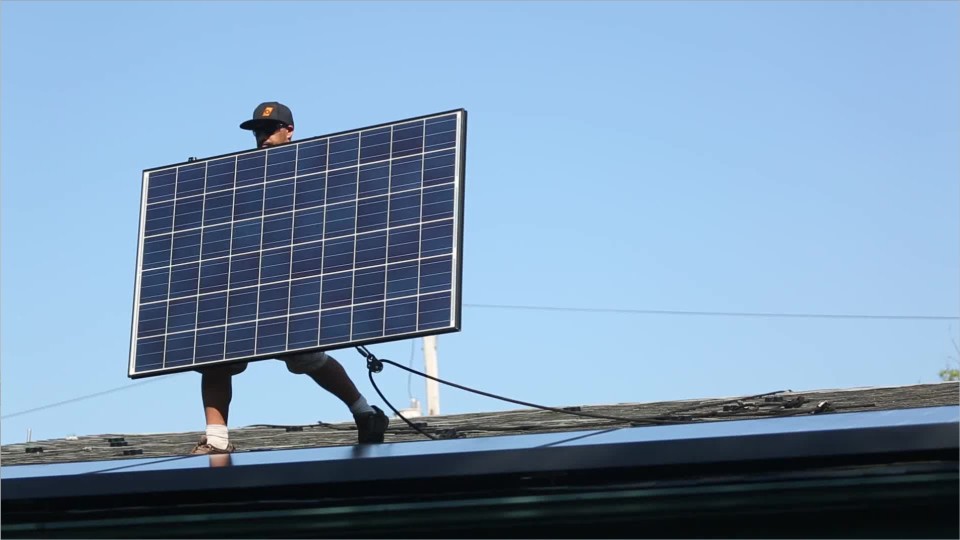Solar Energy Installation Managers
Installation Manager, Solar Energy Installation Manager, Solar Installation Crew Foreman, Solar Installation Manager
What they do:
Direct work crews installing residential or commercial solar photovoltaic or thermal systems.
On the job, you would:
- Plan and coordinate installations of photovoltaic (PV) solar and solar thermal systems to ensure conformance to codes.
- Supervise solar installers, technicians, and subcontractors for solar installation projects to ensure compliance with safety standards.
- Estimate materials, equipment, and personnel needed for residential or commercial solar installation projects.
Knowledge
Engineering and Technology
- building and construction
- design
Business
- customer service
- management
Transportation
- movement of people or goods by air, rail, sea, or road
Math and Science
- arithmetic, algebra, geometry, calculus, or statistics
Skills
Basic Skills
- keeping track of how well people and/or groups are doing in order to make improvements
- reading work related information
Social
- changing what is done based on other people's actions
- talking people into changing their minds or their behavior
Resource Management
- managing your time and the time of other people
- selecting and managing the best workers for a job
Abilities
Verbal
- communicate by speaking
- listen and understand what people say
Ideas and Logic
- notice when problems happen
- use rules to solve problems
Personality
People interested in this work like activities that include practical, hands-on problems and solutions.
Technology
You might use software like this on the job:
Computer aided design CAD software
- Autodesk AutoCAD Civil 3D
- Trimble SketchUp Pro
Presentation software
- Microsoft PowerPoint
Project management software
- Microsoft Project
- Oracle Primavera Enterprise Project Portfolio Management
Education
Education: (rated 3 of 5)
high school diploma/GED or
no high school diploma/GED
usually needed
no high school diploma/GED
usually needed
Job Outlook
Bright
New job opportunities are very likely in the future.
Explore More
- Construction Managers
- First-Line Supervisors of Construction Trades & Extraction Workers
- Solar Photovoltaic Installers
- Solar Sales Representatives & Assessors
- Solar Thermal Installers & Technicians
You might like a career in one of these industries:
See more details at O*NET OnLine about Solar Energy Installation Managers.





